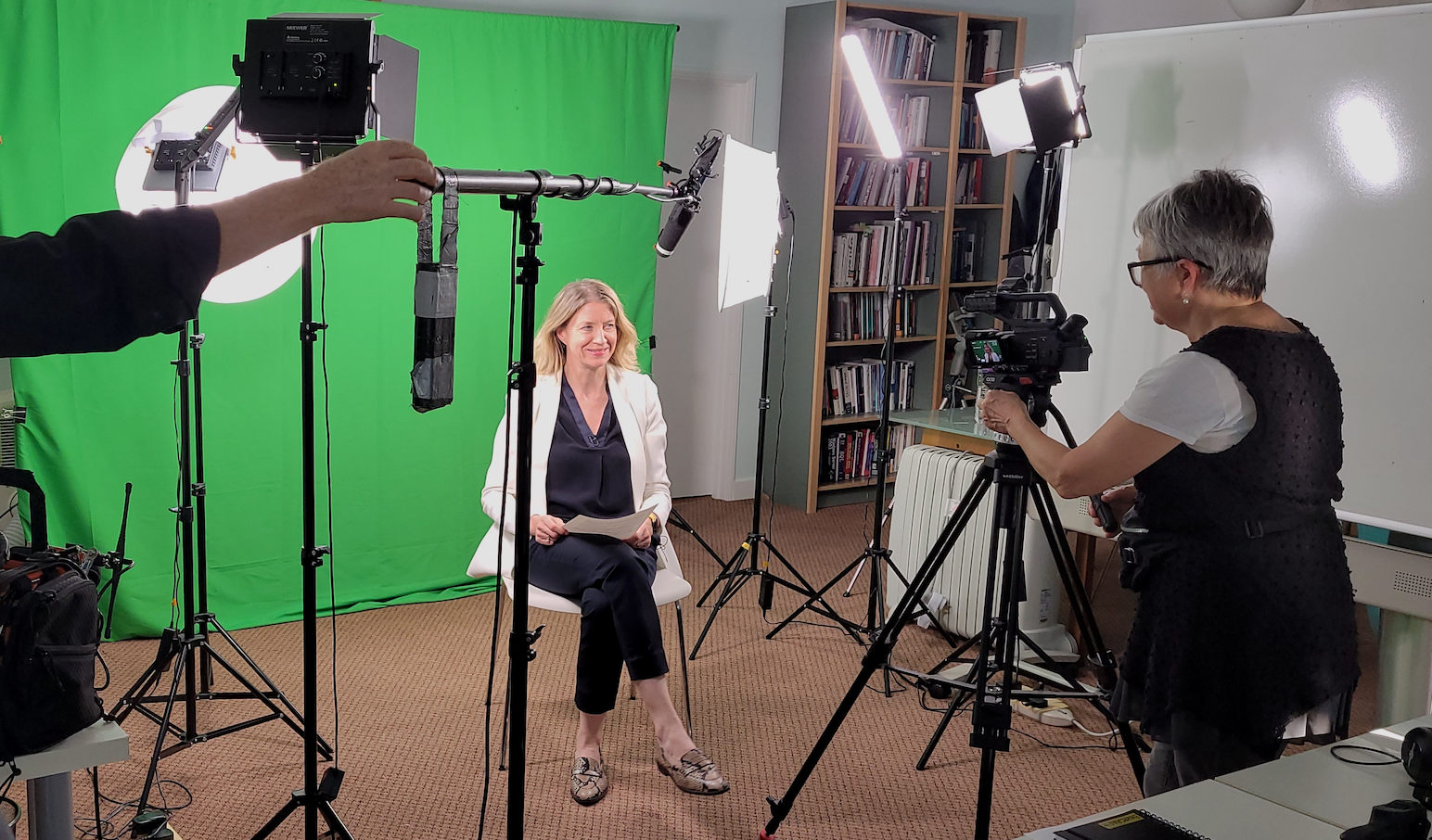Nine questions to ask before you start filming
Video is a key part of any organisation’s digital strategy. Whether you are planning to create something stunning for the homepage of your website, capture key information for internal staff briefings, produce customer information, or take part in media interviews, good quality video helps you connect with your audience.
In some ways making a video can be very simple. Anyone with a decent smartphone can film one, just open up your camera and off you go! But the more effort you put into planning your video, the better the results will be.

Jane Clegg who has made a wide range of videos for our projects including both client-focused and for our own marketing has some top tips to help you prepare.
Marketing video filmed and edited by Jane Clegg to showcase our work with Oxford Instruments.
In short – start with the end in mind. If you have a clear idea of what you want to end up with, getting there is much simpler.
Here are nine questions to answer before you hit record:
- 1. What’s the background to this project?
- 2. What do you want to say?
- 3. How do you want to say it?
- 4. Who are your target audiences?
- 5. Where are they now?
- 6. And where do you want them to get to?
- 7. What will the inputs be?
- 8. What will the outputs be?
- 9. And what will success look like?
What does success look like?
Here’s one example of a video we’ve made for a client with the background, audience, outputs, and what success looked like.
Most hospital complaints concern how staff behave towards patients – every day issues of respect, rather than clinical negligence. We were asked to make a London Hospital’s rather dry ‘Code of Behaviour’ an engaging and effective learning experience.
We created a series of TV-quality dramatised case stories, showing both poor- and good-practice examples.
In addition to superb uptake within the Homerton, dozens of NHS trusts and teaching organisations across the UK subsequently licensed ‘Good Attitude’ – with the Homerton recouping their investment.
“Your skill and expertise enabled us to realise a vision way beyond our original one.”
Sometimes plans have to be adapted along the way and the inputs are what is available rather than the ideal footage.
We’re currently working with the ASsuRED project team and their five year programme of research. Their aim is to develop and test a new intervention for people who present in Emergency Departments having harmed themselves, which began in May 2019. We’ve had to overcome a series of challenges, because of lockdown and Covid restrictions and have been giving guidance for self-filming and then editing the footage to improve sound and picture quality. We’ll share more on this project as it develops.
Whether you are making a quick clip for social media or the key content for the homepage of your new website will determine how detailed your answers to our nine key questions need to be and how much planning and goes into your video.
Look out for more tips on getting the best quality video you can in future articles. We’ll be covering sound, lighting, backgrounds, and messaging.
If you have any questions about incorporating video into your digital strategy we’re happy to chat.
